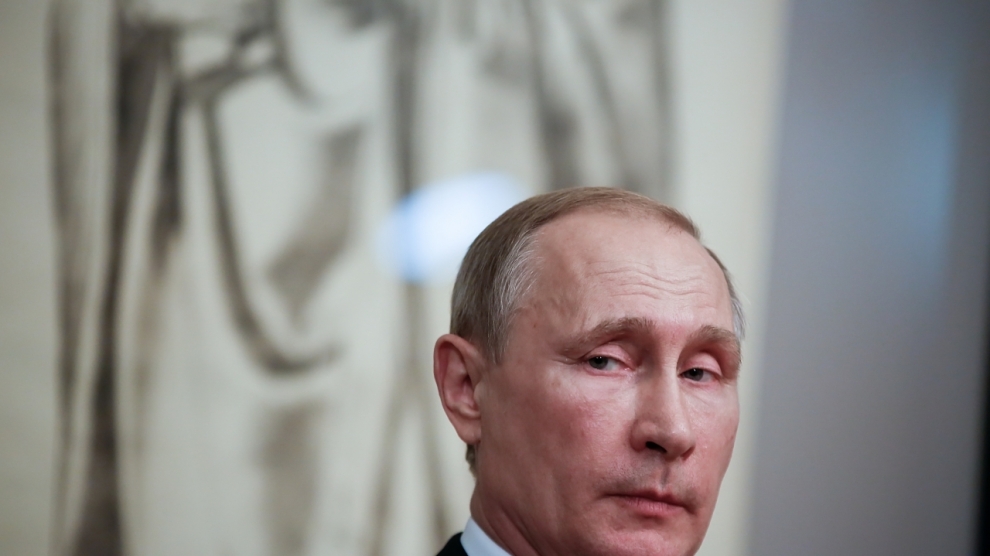Instead of using the Lithuanian ports, Belarus should use Russia’s Baltic ports in the Gulf of Finland, Saint Petersburg and Ust Luga, to transport its oil products made from Russian crude oil, said Russian president, Vladimir Putin during his recent visit to Russia’s Baltic Sea exclave of Kaliningrad, sandwiched between Poland and Lithuania.
Mikhail Krutikhin, a partner at Moscow-based RusEnergy consulting agency explains that Belarus would have to pay €127.5 million, extra per annum, to reroute shipments from the oil processing factories in Mozyr and Navapolacak.
“The Russian railways’ cargo transportation tariffs are now higher than those of Lithuania’s state railway company, Lietuvos Gelezinkeliai (Lithuanian Railways), and, importantly, the Lithuanian companies, including Port of Klaipeda, have made a name for themselves as reliable long-term partners,” he says.
Should Belarus give in to Putin’s demand, Lithuania’s port of Klaipeda would lose 40 per cent of its current loading volume and the railway company’s transportation volume would shrink by four-five per cent due to the loss of Belarusian oil product shipments.
In the first half of 2017, Lietuvos Gelezinkeliai handled a total of 29 million tons of freight, up by 6.5 per cent, year-on-year, including 1.224 million tons of transit oil shipments via the port of Klaipeda, according to Lithuanian Statistics.
“Sending Belarusian shipments by Russian railways, via Russian ports, would not be economically viable and strategically dangerous (for Belarus), given that these (Russian) ports freeze (in winter) and that climatic conditions are completely different there. This is especially sensitive for oil product shipments,” Saulius Skvernelis, Lithuania’s prime minister, said following the Putin statement.
Until now, Belarus has defied Russia’s demands, but the situation could change.
“What Putin said in Kaliningrad is nothing new — Russia has always exhorted Belarus to transit products, derived from Russian crude oil, through the Russian Baltic seaports instead of via Klaipeda and the Latvian ports of Riga and Ventspils,” Mr Krutikhin emphasises.
He believes Russia wants that, since the heated Russian–Belarusian energy dispute in 2007, when Russian state-owned gas supplier, Gazprom, demanded an increase in the gas prices that Belarus, Russia’s close ally, paid. That year, the Russian state-owned pipeline company Transneft stopped pumping oil into the Druzhba pipeline which ran through Belarus because Belarus was allegedly siphoning the oil off the pipe without a mutual agreement. Soon Russia built an oil pipeline, known as BTZ2, or the Baltic oil pipeline, that linked Belarus with the Russian seaports, Ust Luga and Saint Petersburg. Russia had stopped exporting its crude oil through Lithuania before.
“Although Putin’s words sounded like an ultimatum, it remains to be seen what will, if anything, be done this time (in complying with the Russian president’s demand). Now we have to wait and see whether the Russian government will start putting pressure on the Belarusian government,” Mr Krutikhin told Emerging Europe.
Minsk and Moscow fail to agree on how to share revenue from oil products made from Russian crude oil. Russia also wants to participate in the privatisation of two Belarusian crude refineries, but Minsk seeks that the state should retain control of the companies.
Aleksej Zanemanski, former head of expansion at Orlen Lietuva, an oil refinery in Mazeikiai in north-western Lithuania, says that, upon a political whim, the transportation of Belarusian oil product cargo through Lithuania could be halted “within a day”.
“If Putin tells the Russian Railways to give, say, a 70 per cent discount for Belarus oil goods, Lithuania will be in a real trouble,” he told Emerging Europe.
Belarus’ contract with Port of Klaipeda expires on October 31, 2019.
“2019 could be very tense for Lithuania and the port — Russia will definitely ramp up the ante against Belarus on the issue,” Zanemanski predicts.
Meanwhile, Vidmantas Jankauskas, former chief of Lithuania’s State Commission for Energy Control and Prices (VKEKK), says that the approach of Russia’s war games, in Belarus, next month will be watched not only for reasons of border security.
“I wouldn’t be surprised if Russia brings up the Belarus-against- Lithuania card again. With over 10,000 Russian troops in Belarus, near the Lithuanian border, Putin will get another great chance to remind us all of his old desire – to leave Lithuania without a lucrative business,” he tells Emerging Europe.






Add Comment